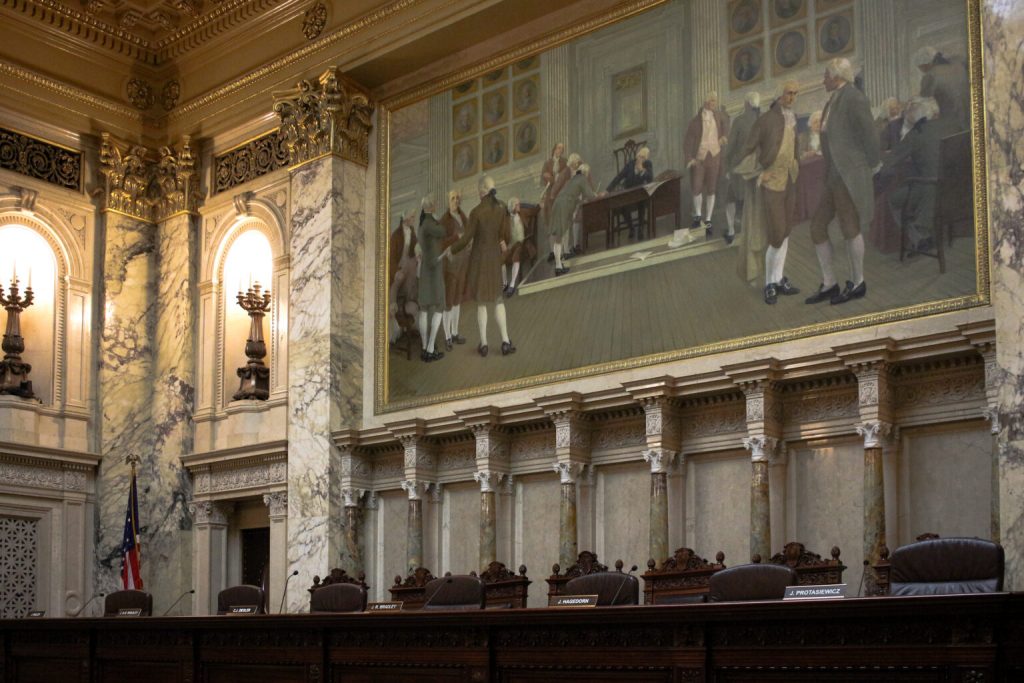Petition Asks State Supreme Court to Limit Challenges to Election Laws
Granting standing based on 'vote pollution' will create chaos, Democrats contend.
A group of Democratic voters have asked the Wisconsin Supreme Court to set a new standard for when someone can challenge the state’s voting laws. The group argues that someone’s belief that a law dilutes their voting power isn’t enough to bring a case.
The request is part of a petition filed this week asking the court to directly accept the appeal in a case about ballot spoiling — the previously allowed practice of a voter requesting the clerk return an already cast absentee ballot, voiding the original and casting a new ballot.
Ballot spoiling was previously allowed under guidance from the Wisconsin Elections Commission (WEC). The practice gained interest during the 2022 Democratic primary for U.S. Senate, in which three candidates dropped out of the race in the weeks leading up to the primary.
Nancy Kormanik, a member of the Waukesha County Republican Party, filed a lawsuit challenging the WEC guidance and a Waukesha County judge enjoined the guidance, ending the practice.
In the petition for the Supreme Court to bypass the appellate courts and accept the case, attorneys for RISE Inc., which has intervened in the case, argue that accepting the appeal will give the Court the opportunity to put an end to a legal theory that has begun to emerge in the state since the 2022 case that ended the use of absentee ballot drop boxes in that case.
In the Court’s decision in Teigen v. WEC, three members of the Court’s then-conservative majority endorsed the theory that anyone has the standing to challenge an election law if they believe a practice create’s “vote pollution.” Justice Brian Hagedorn did not endorse the theory, meaning it did not have the four votes required to become binding precedent in the state. The petition to bypass filed this week states that even without becoming precedent, judges have treated “vote pollution” as a valid cause for standing when challenging election procedures.
“Yet in recent cases involving crucial questions of election administration, some circuit courts have assumed otherwise, treating vote pollution as Wisconsin’s newest path to standing,” the petition states.
The petition argues that granting standing because of “vote pollution” allows anybody to challenge the state’s voting laws, which could create chaos.
“Teigen did not change that fact — three-Justice lead opinions do not make new law,” the petition states. “And throwing open the courthouse doors to plaintiffs like Kormanik is far from ‘sound judicial policy.’ Doing so invites disruptive election-eve litigation by litigants with no real stake in the issues. If Kormanik has standing, then any voter may bring suit to disrupt Wisconsin election administration at any time — so long as they use the magical incantation ‘vote pollution.’”
The petition states that clarification is needed especially ahead of this year’s presidential election to protect the system from unwarranted attacks.
“Recent years have witnessed an explosion in pre-election emergency litigation, and 2024 is likely to follow the trend,” the petition continues. “Unless the Court grants this petition and repudiates vote-pollution standing, Wisconsin courts are likely to see a series of lawsuits brought by litigants who have no real injury but seek to use the judiciary to disrupt the functioning of the state’s election system.”
Democratic voters ask Wisconsin Supreme Court to limit ability to challenge election laws was originally published by Wisconsin Examiner.






















While conservatives have always demonized what they claim are activists courts who are taking away individual rights, they are now using well funded conservative law firms like WILL to file suit on most anything that they don’t like. The threat of groundless lawsuits which many courts do not throw out as meritless are used to intimidate elected officials, civil service employees and teachers as a means to intimidate them in their work.